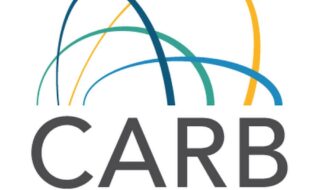May 6, 2025
Minor reductions in income and property taxes pass
Beginning on Day One, the 2025 session of the Montana Legislature was more about personalities than policy, resulting in an odd mix of rather populist legislation passing while both conservative and liberal proposals failed to garner enough support to cross the finish line.
Legislators introduced 1,759 bills this session, setting a record in the state that was only surpassed in the 1973-74 session when they met yearly and had many changes to make, due to the new constitution.
Only 878 of these proposals passed both chambers, ranking it fifth in Montana history for new laws. Let’s begin with the anti-small business proposals NFIB was able to help stop:
HB 160 Repeal uniform auxiliary container regulation laws
HB 290 Regulate sales of certain products containing PFAs.
HB 297 Establish requirement for paid sick days
HB 484 Revise minimum wage laws to provide increases
HB 489 Revise sales tax laws to provide local option tax
HB 727 Revise WC laws relating to competitive markets
HB 805 Generally revise WC law
SB 291 Revising laws related to WC definition of wages
SB 295 Restoring the right of injured worker to choose their own doctor
SB 308 Revising workers’ compensation insurance laws to remove the limitation on benefits
SB 313 Revise laws relating to wage transparency
SB 325 Creating family and medical leave act
SB 329 Require employers to use e-verify for employment eligibility
And, HB 477 Phase out polystyrene single use food containers
This proposal passed both chambers narrowly, 26–22 in the Senate and 56-41 in the House. We have formally asked Gov. Greg Gianforte to veto this bill and he did so early this week.
Income Taxes
And now, a bit about tax policy changes enacted this session:
Income tax changes were finalized with modest downward adjustments for most Montanans. Those with federally adjusted gross income of $40,000 will see no change; $80,000 will see about $100 reduction; $160,000 about $1,200 the first year and another $400 in the second year.
The fiscal note indicates the average per household will be $258 the first year and $381 when fully implemented. Under current law:
— Individuals: the first $20,500 is taxed at 4.7%. Everything above is taxed at 5.9%.
— Filing jointly: the first $41,000 is taxed at 4.7%. Everything above is taxed at 5.9%.
— Capital gains (joint): the first $41,000 is taxed at 3%. Everything above is taxed at 4.1%.
In 2026 tax rates will be:
— Individuals: the first $47,500 is taxed at 4.7%. Everything above is taxed at 5.65%.
— Filing jointly: the first $95,000 is taxed at 4.7%. Everything above is taxed at 5.65%.
— Capital Gains (joint): the first $95,000 is taxed at 3%. Everything above is taxed at 4.1%.
In 2027 and forward tax rates will be:
— Individuals: the first $65,000 is taxed at 4.7%. Everything above is taxed at 5.4%.
— Filing jointly: the first $130,000 is taxed at 4.7%. Everything above is taxed at 5.4%.
— Capital Gains (joint): the first $130,000 is taxed at 3%. Everything above is taxed at 4.1%.
Property Taxes
The last two days of the session were spent finalizing the property tax relief package. The final product is convoluted, confusing and makes the tax code even more complicated. However, it should provide minor reductions for homeowners and slight reductions or no increase for small business.
In the end, there were no reductions in the amount of property taxes collected. It simply shifted who pays.
Each Montana homeowner will receive a $400 check to offset this year’s taxes. For tax year 2025, the tax rate on owner-occupied houses is dropping:
— from the current 1.35% of value to .76% for the first $400,000 of value;
— 1.1% of value greater than $400,000 and less than $1.5 million;
— and then increasing to 2.2% on any value greater than $1.5 million.
For tax year 2025, the tax rate on commercial property valued at less then $400,000 is 1.4% and any value in excess will remain at the current rate of 1.89%
The Department of Revenue has indicated that the average increase in appraised value for residential property in Montana will be 11% in 2025.
In order to calculate your savings, you must first assume the increase in value, then multiply by the applicable tax rates and then multiply by the number of mills assessed in your local area. The decrease in residential tax rate will cause the total taxable value of all property in the county/school district to fall. This will likely result in mill levies “floating” upwards in order for the local government to collect the same dollar amount as 2024.
During 2025 you will be asked to prove that your home is owner occupied and any rental property is used as a full-time rental and not a short-term rental. In 2026, second homes (those occupied less than seven months per year) and short-term rentals will see a 67% increase in their taxes!
In an attempt to keep the tax burden from heavily shifting to commercial property, the tax rate for commercial and industrial property valued at less than $1.9 million will drop to 1.5% in 2026. Larger commercial, industrial and centrally assessed were not adjusted and will likely see large tax increases.
Agricultural land will have its tax rate dropped from 2.16% of production value to 2.05%. This will likely not result in any decrease in property taxes, but should hold the increase due to the tax shift, at a small amount.
Small Business Beneficial Bills Passing
Workers’ Compensation
HB 143 Revise definition of treating physician to include PA without regards to proximity of other providers
Physician Assistants (PAs) are often less expensive and quicker to get in to see. Under previous law, workers’ compensation could only allow for a PA to be the treating physician if no other physician was in the area.
HB 197 Revising Workers Compensation laws relating to when the employee is released to return to work
This eliminates some of the paperwork that slows down the return-to-work process when the employee is able to work with no restrictions. Previous law required a process that often took two to three weeks after the doctor had released the worker to full activity.
HB 367 Revise Workers Compensation laws relating to travel and reimbursement
As many employers now pay mileage, or a base amount for mileage, to their employees for travel in their personal vehicles, this clarifies that by doing this, the employee is not automatically covered by workers’ compensation any time they are in that vehicle.
(Still awaiting governor’s signature)
HB 428 Revising provisions related to workers compensation
Attempts to further define when an employer is not responsible for WC when using sub-contractors.
(Still awaiting governor’s signature)
HB 516 Move worker’s compensation court to judicial branch
NFIB only monitored this bill.
SB 109 Revise Workers Compensation definition of treating physician to include Physical Therapists
Physical therapists are often less expensive and quicker to get in to see. This would allow them to be the primary treating physician when appropriate. NFIB only monitored this bill.
Unemployment Insurance
HB 210 Revise laws relating to UI program collection rates and uses
This creates a new lower-fee tier in Unemployment Insurance and should reduce many small business UI rates.
General Employment Issues
HB 226 Provide for legal employment and government accountability review
This bill allows employers to use either the currently required I-9 or E-Verify, but gives the Montana Department of Labor the ability to check I-9 forms when inspecting a business’ records.
(Still awaiting governor’s signature)
Tort Reform
HB 791 Generally revise nuisance laws
Limits abusive public nuisance lawsuits
SB 143 Generally revise civil liability laws relating to statutes of limitations for certain actions
This reduces the statute of limitations for the contractor’s liability for work done on real property from eight and 10 years to six years.
Miscellaneous Issues
HB 443 Repeal county licensing of transient retail businesses
(Still awaiting governor’s signature)
HB 463 Revise business laws relating to conversion of certain business entities
This attempts to make it easier for a small business to convert from one tax filing status to another. For example, from an LLC to a Limited Partnership.
(Still awaiting governor’s signature)
HB 530 Generally revise business laws
This attempts to make it easier to move a business into Montana. Remember, that when referring to a “foreign” business at the Secretary of State, it is any business that is filed outside of Montana.
(Still awaiting governor’s signature)
SB 19 Revise sentencing laws related to theft
This makes shoplifting and writing bad checks a punishable crime again.
(Still awaiting governor’s signature)
Good Small Business Bills Not Passing
HB 302 Revising punitive damage laws and procedures
This bill would have required more evidence presentation in order to claim punitive damages.
SB 322 Increase the business equipment tax exemption
In its original proposed version, this would have increased the amount of business equipment exempt from taxation from $1 million to $3 million. It was later amended to $1.5 million, but still failed to pass.
SB 418 Generally revise laws relating to home based businesses
This bill would have prevented local governments from banning home-based businesses.
SB 528 Revising laws related to credit card transaction fees
This proposal would have clarified in Montana law that credit card transaction fees are allowed. It also would have limited them to 3% and required that they be fully disclosed prior to the completion of the transaction. NFIB only monitored this bill.
HB 131 Revising the duration of unemployment insurance benefits
It would have SAVED the Unemployment Insurance fund over $5 million per year.
In the Interim
Additionally, there are 36 study resolutions that will direct the legislative interim committees’ work. One of those will likely be of interest to Montana small business owners. HJ 61 directs the legislative interim committee to study what is driving the increase in insurance rates and suggest possible changes. NFIB will actively participate in this discussion during the interim.
Prior Legislative Reports
— April 14: Legislature in Final Weeks of 2025 Session
— April 6: House Passes State Budget Bill, Senate Up Next
— March 29: Five NFIB-Backed Bills Now on Governor’s Desk
— March 22: NFIB-Backed Workers’ Compensation Bill on Governor’s Desk
— March 15: Legislature at Midway Point of 2025 Session
— March 1: Montana Legislature Shifts into Overdrive
— February 14, 22: Weekly Legislative Update
— February 7: NFIB Tracking Nearly 30 Measures Important to Small Business for Support, Opposition, or Tracking
— February 2: NFIB-Supported Unemployment Insurance, Workers’ Comp Bills Advance
— January 26: Legislature Simmers Down, Settles into Normal Pace
— January 20: Governor’s Property Tax Proposal Starts Legislative Run
— January 12: Chaotic Start to the 2025 Legislative Session
— January 6: Montana Legislature Starts its 2025 Session
NFIB is a member-driven organization advocating on behalf of small and independent businesses nationwide.
Related Articles














